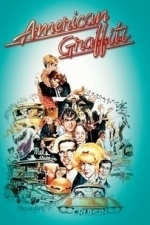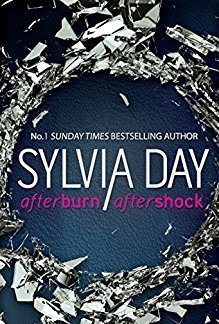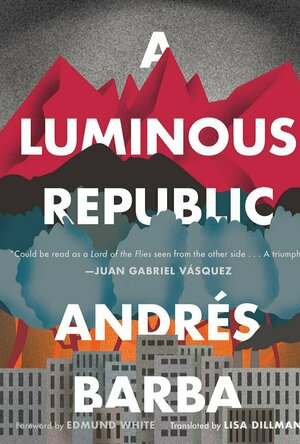Search
Search results
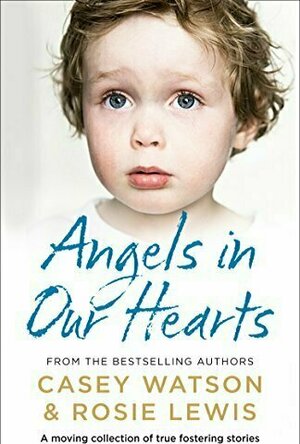
Angels in Our Hearts
Book
A moving collection of 6 short stories – Helpless, A Small Boy’s Cry, Two More Sleeps,...
Darren (1599 KP) rated American Graffiti (1973) in Movies
Nov 21, 2019
Thoughts on American Graffiti
Characters – Curt has always enjoyed his time on the strip, he knows everybody and is one of the most popular guys around, he was due to head of the college, but hasn’t made his mind up yet, despite it needing to be read for his next day, he ends up trying to spend his time chasing a mysterious woman around town all night. Steve has always planned his life out, he is going off to college and he is ready to make his relationship more open while they are separated, here he gets to learn about his relationship even if his best friend might not be joining him in college. John is the friend that has always been known for his ability with cars, he has a reputation around town with the police following him around and now he is starting to see the future where his friends are doing a lot more than him and gets stuck with a younger girl for the night, where he starts to see a brighter side to his future. Terry has always been the butt of most of the jokes between the friends, now he gets Steve’s car to look after he spends the night trying to find himself a woman and impress her with his lines.
Performances – When we look at the cast, Richard Dreyfuss is great through the film showing us a character that can get plenty of laughs and is quick on his feet. Ron Howard brings the character we know him for is always going to be easy for him to play. Paul Le Mat brings the typical bad boy to life that does show how he bought us a level of sympathy to the character. Charles Martin Smith brings the geeky sounding character out which become one of the most popular characters in these teen comedies for years to come.
Story – The story here follows four friends on the last day of summer before college is due to start, we see how the four have a different adventure on this night, which will help them discover what they want next in their lives. This is a story that shows just how difficult life is when you take the next step, leaving school is one of the first and biggest anybody will take, with the uncertainty being there for everybody involved, part of you will want to stay close to what you already had, while other sides of this will see you wanting to see what is next. This story mixes all of this together through the film with little effort and makes you believe these people could be real, while certain aspects will have dated here, with a new generation, back n the 1970s this would have been the idea of the house party in the 80s or 90s and wild adventure the modern youth would be having.
Comedy – The comedy in this film would be right up there with any teen comedies, it would have gotten more laughs for when it was released, rather than the ones you would expect to see now.
Settings – The film is set in one hang out location known as the strip, this will be the location where we get all the hang outs you would expect for teens in this generation.
Scene of the Movie – Terry’s attempts to get boozes.
That Moment That Annoyed Me – The world involved does seem to have dated.
Final Thoughts – This is a wonderful look at teenage life in the 70s it shows us just how close the friendships were, how hard the changes coming were and just what was left for the people in life.
Overall: Beautiful Look at the 70s.
Rating
Characters – Curt has always enjoyed his time on the strip, he knows everybody and is one of the most popular guys around, he was due to head of the college, but hasn’t made his mind up yet, despite it needing to be read for his next day, he ends up trying to spend his time chasing a mysterious woman around town all night. Steve has always planned his life out, he is going off to college and he is ready to make his relationship more open while they are separated, here he gets to learn about his relationship even if his best friend might not be joining him in college. John is the friend that has always been known for his ability with cars, he has a reputation around town with the police following him around and now he is starting to see the future where his friends are doing a lot more than him and gets stuck with a younger girl for the night, where he starts to see a brighter side to his future. Terry has always been the butt of most of the jokes between the friends, now he gets Steve’s car to look after he spends the night trying to find himself a woman and impress her with his lines.
Performances – When we look at the cast, Richard Dreyfuss is great through the film showing us a character that can get plenty of laughs and is quick on his feet. Ron Howard brings the character we know him for is always going to be easy for him to play. Paul Le Mat brings the typical bad boy to life that does show how he bought us a level of sympathy to the character. Charles Martin Smith brings the geeky sounding character out which become one of the most popular characters in these teen comedies for years to come.
Story – The story here follows four friends on the last day of summer before college is due to start, we see how the four have a different adventure on this night, which will help them discover what they want next in their lives. This is a story that shows just how difficult life is when you take the next step, leaving school is one of the first and biggest anybody will take, with the uncertainty being there for everybody involved, part of you will want to stay close to what you already had, while other sides of this will see you wanting to see what is next. This story mixes all of this together through the film with little effort and makes you believe these people could be real, while certain aspects will have dated here, with a new generation, back n the 1970s this would have been the idea of the house party in the 80s or 90s and wild adventure the modern youth would be having.
Comedy – The comedy in this film would be right up there with any teen comedies, it would have gotten more laughs for when it was released, rather than the ones you would expect to see now.
Settings – The film is set in one hang out location known as the strip, this will be the location where we get all the hang outs you would expect for teens in this generation.
Scene of the Movie – Terry’s attempts to get boozes.
That Moment That Annoyed Me – The world involved does seem to have dated.
Final Thoughts – This is a wonderful look at teenage life in the 70s it shows us just how close the friendships were, how hard the changes coming were and just what was left for the people in life.
Overall: Beautiful Look at the 70s.
Rating
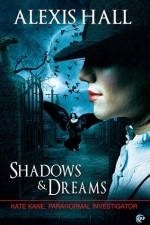
Shadows & Dreams
Book
Second rule in this line of business: be careful who you kill. My name’s Kate Kane. And right...
Science fiction fantasy
LA
Li'l Abner: The Complete Dailies and Color Sundays: Vol. 6: 1945-1946
Book
Beware, readers, beware! Amidst such buxom beauties as Daisy Mae, Wolf Gal, and Moonbeam McSwine,...
Kristy H (1252 KP) rated The Sun is Also a Star in Books
Feb 13, 2018
Natasha is a Jamaica-born teenager who believes more in science than true love. She and her family are also about to be deported back to Jamaica. Daniel, the son of Korean-born parents, is a dutiful son who dreams of becoming a poet. Daniel loves words and the idea of fate. When he meets Natasha, he's convinced she's his. His fate, his true love. Natasha isn't so sure, but she can't help but admit that this handsome, intelligent boy is something special.
What follows is an amazing story of two young people: most of it occurring across the day they meet. Told from the alternating perspectives of Natasha and Daniel, but interspersed with bits and pieces of history, facts, and small insights into the people with whom they come into contact on their one magical day, this is a beautiful, lovely, and touching story. Daniel readily admits in the novel that he's a cheesy guy, and yes, the story may be a bit cheesy at points, but boy, it draws you in immediately, and it's just... great. I really loved Yoon's first book, [b:Everything, Everything|18692431|Everything, Everything|Nicola Yoon|https://images.gr-assets.com/books/1450515891s/18692431.jpg|26540216], and I think this one may be even better. How does she do it?
Daniel and Natasha spring to life in front of you, as you frantically flip pages, wondering what will become of these two people. The bit players in their life take on a life all of their own, thanks to the little insight you receive via their own chapters. I am just awed at how well this woman writes teenage characters - spirited, real, flawed, lovely characters. I read the second half of this book in one sitting, because I just had to see how it ended, and find out the fate of Natasha and Daniel.
Indeed, the racial and immigration plotlines of this novel could not seem more timely, what with the Presidential Election and the current tumult America is undergoing. I wish this book was required reading of every citizen.
<i>"If people who were actually born here had to prove they were worthy enough to live in America, this would be a much less populated country." ~ Natasha</i>
This is not just a potential love story; this is a book that will make you think and make you cry. It's a love story of teens, it's an ode to New York City, and it's a tribute to both science and poetry. I highly recommend it.
What follows is an amazing story of two young people: most of it occurring across the day they meet. Told from the alternating perspectives of Natasha and Daniel, but interspersed with bits and pieces of history, facts, and small insights into the people with whom they come into contact on their one magical day, this is a beautiful, lovely, and touching story. Daniel readily admits in the novel that he's a cheesy guy, and yes, the story may be a bit cheesy at points, but boy, it draws you in immediately, and it's just... great. I really loved Yoon's first book, [b:Everything, Everything|18692431|Everything, Everything|Nicola Yoon|https://images.gr-assets.com/books/1450515891s/18692431.jpg|26540216], and I think this one may be even better. How does she do it?
Daniel and Natasha spring to life in front of you, as you frantically flip pages, wondering what will become of these two people. The bit players in their life take on a life all of their own, thanks to the little insight you receive via their own chapters. I am just awed at how well this woman writes teenage characters - spirited, real, flawed, lovely characters. I read the second half of this book in one sitting, because I just had to see how it ended, and find out the fate of Natasha and Daniel.
Indeed, the racial and immigration plotlines of this novel could not seem more timely, what with the Presidential Election and the current tumult America is undergoing. I wish this book was required reading of every citizen.
<i>"If people who were actually born here had to prove they were worthy enough to live in America, this would be a much less populated country." ~ Natasha</i>
This is not just a potential love story; this is a book that will make you think and make you cry. It's a love story of teens, it's an ode to New York City, and it's a tribute to both science and poetry. I highly recommend it.
Whatchareadin (174 KP) rated Afterburn & Aftershock (Jax & Gia, #1-2) in Books
May 10, 2018
I read the Afterburn and Aftershock together. I'm a big fan of Sylvia Day and this quick read was not a disappointment.
Gianna Rossi and Jackson Rutledge have history. But after two years of hearing nothing from Jackson, Gianna is ready to move on. Back from Las Vegas, in New York, close to her family, she is looking for a job. She finds one that is just perfect for her. After being on the job for a while, she gets a big assignment. Working this assignment gets her back in touch with Jackson, Jax as she calls him.
Will they be able to pick up where they left off? Does Gianna want to pick up where they left off? Will they still have the passion for one another that they once did? And what will her family and her boss think about her being with this powerful man, who destroyed her life before?
Another juicy tale from Sylvia Day. These two stories are a part of <a href="http://www.cosmopolitan.com/cosmo-red-hot-reads">Cosmo's Red-Hot Reads</a> and they didn't disappoint. I enjoy a good steamy read. It helps me after I have read something I didn't enjoy or something that was challenging to unwind for the next thing.
The thing that really gets me about these types of books though is that they feature an extremely handsome and wealthy man and a woman they are smitten with at first sight. then he has her move in with him and has his security detail following her around all the time. When is the female millionaire going to fall in love with the guy who delivers her packages everyday or makes her espresso? Then she finds out he really is the rich one and owns the coffee shop and countless others all over the world. Or he's the president of the delivery company who likes working alongside his employees. Is there a book out there like that already? If so, please give me the title.
Gianna Rossi and Jackson Rutledge have history. But after two years of hearing nothing from Jackson, Gianna is ready to move on. Back from Las Vegas, in New York, close to her family, she is looking for a job. She finds one that is just perfect for her. After being on the job for a while, she gets a big assignment. Working this assignment gets her back in touch with Jackson, Jax as she calls him.
Will they be able to pick up where they left off? Does Gianna want to pick up where they left off? Will they still have the passion for one another that they once did? And what will her family and her boss think about her being with this powerful man, who destroyed her life before?
Another juicy tale from Sylvia Day. These two stories are a part of <a href="http://www.cosmopolitan.com/cosmo-red-hot-reads">Cosmo's Red-Hot Reads</a> and they didn't disappoint. I enjoy a good steamy read. It helps me after I have read something I didn't enjoy or something that was challenging to unwind for the next thing.
The thing that really gets me about these types of books though is that they feature an extremely handsome and wealthy man and a woman they are smitten with at first sight. then he has her move in with him and has his security detail following her around all the time. When is the female millionaire going to fall in love with the guy who delivers her packages everyday or makes her espresso? Then she finds out he really is the rich one and owns the coffee shop and countless others all over the world. Or he's the president of the delivery company who likes working alongside his employees. Is there a book out there like that already? If so, please give me the title.
Whatchareadin (174 KP) rated Afterburn & Aftershock (Jax & Gia, #1-2) in Books
Apr 3, 2019
I read the Afterburn and Aftershock together. I'm a big fan of Sylvia Day and this quick read was not a disappointment.
Gianna Rossi and Jackson Rutledge have history. But after two years of hearing nothing from Jackson, Gianna is ready to move on. Back from Las Vegas, in New York, close to her family, she is looking for a job. She finds one that is just perfect for her. After being on the job for a while, she gets a big assignment. Working this assignment gets her back in touch with Jackson, Jax as she calls him.
Will they be able to pick up where they left off? Does Gianna want to pick up where they left off? Will they still have the passion for one another that they once did? And what will her family and her boss think about her being with this powerful man, who destroyed her life before?
Another juicy tale from Sylvia Day. These two stories are a part of Cosmo's Red-Hot Reads and they didn't disappoint. I enjoy a good steamy read. It helps me after I have read something I didn't enjoy or something that was challenging to unwind for the next thing.
The thing that really gets me about these types of books though is that they feature an extremely handsome and wealthy man and a woman they are smitten with at first sight. then he has her move in with him and has his security detail following her around all the time. When is the female millionaire going to fall in love with the guy who delivers her packages everyday or makes her espresso? Then she finds out he really is the rich one and owns the coffee shop and countless others all over the world. Or he's the president of the delivery company who likes working alongside his employees. Is there a book out there like that already? If so, please give me the title.
Gianna Rossi and Jackson Rutledge have history. But after two years of hearing nothing from Jackson, Gianna is ready to move on. Back from Las Vegas, in New York, close to her family, she is looking for a job. She finds one that is just perfect for her. After being on the job for a while, she gets a big assignment. Working this assignment gets her back in touch with Jackson, Jax as she calls him.
Will they be able to pick up where they left off? Does Gianna want to pick up where they left off? Will they still have the passion for one another that they once did? And what will her family and her boss think about her being with this powerful man, who destroyed her life before?
Another juicy tale from Sylvia Day. These two stories are a part of Cosmo's Red-Hot Reads and they didn't disappoint. I enjoy a good steamy read. It helps me after I have read something I didn't enjoy or something that was challenging to unwind for the next thing.
The thing that really gets me about these types of books though is that they feature an extremely handsome and wealthy man and a woman they are smitten with at first sight. then he has her move in with him and has his security detail following her around all the time. When is the female millionaire going to fall in love with the guy who delivers her packages everyday or makes her espresso? Then she finds out he really is the rich one and owns the coffee shop and countless others all over the world. Or he's the president of the delivery company who likes working alongside his employees. Is there a book out there like that already? If so, please give me the title.
Hazel (1853 KP) rated The Care and Management of Lies in Books
Dec 17, 2018
<i>I received this book for free through Goodreads First Reads.</i>
British author Jacqueline Winspear states in the letter from the author at the front of the book that the idea for this novel came from a second hand copy of a book titled <i>The Woman’s Book</i> by Florence B Jack (1911) containing an inscription revealing that it was presented as a gift to a woman on her wedding day in July 1914. The story within </i>The Care and Management of Lies</i> is Winspear’s imaginings about who that woman was and what her life was like.
The book focuses primarily on four characters, the main being Kezia Brissenden née Marchant who receives the gift <i>The Woman’s Book</i> from a close friend, Dorothy “Thea”, who so happens to be the older sister of her new husband, Tom. The book was not a particularly kind gift as it emphasized Kezia’s upbringing and who, due to her father being a reverend and employer of maids and cooks, had never produced her own meal in her life nor had any experience with running a household, let alone a farm – her new home.
Whilst Kezia determinedly throws herself into her new role, showing her love for Tom through the food she learns to cook, Thea, living in London, is drifting away from their friendship. With the possibility of war on the horizon, Thea joins a pacifist movement, which is somewhat ironic as she was once involved with the suffragettes. On the other hand, once war is declared, Tom decides to enlist in the army as does neighbour, Edmund Hawkes, a man who is rather envious of Tom and his lovely wife. The reader receives two different perspectives of the terrors of war from these characters, but then also another, surprisingly, from Thea who rejects pacifism and goes out to France to help in anyway she can. This leaves Kezia at home alone with the effects the war has on Britain.
The love between Kezia and Tom is emphasized through the letters they send each other. Both are lying about their situations by trying to convince the other that they are better off than they really are. The thing that keeps them both going are Kezia’s descriptions of her fictional meals that she prepares for Tom’s dinner, describing in great detail the preparation and taste of the food.
Each chapter begins with a quote from <i>The Woman’s Book</i> (and later <i>Infantry Training</i> and <i>Field Service Pocket Book</i>) that relate to the particular events occurring in the story at that time. This is a great way of underlining the significance of that wedding present to the storyline.
The narrative quickly changes from character to character which, although helping to keep the pace of the novel, can sometimes be a little confusing. It also made it difficult to get into the story at the beginning. Sometimes it took a lot of concentration to follow the text and those with minds that easily wander may constantly find themselves suddenly reading from a different point of view without having noticed the change over.
Winspear’s grandfather was a soldier in the trenches during the Great War and so it seems likely that some of the scenes may be based on his experiences. If that is the case then it can be believed that <i>The Care and Management of Lies</i> is as accurate as can be in terms of the war and life on the front lines. Winspear also does not attempt to gloss over any of the war horrors, therefore does not create the unlikely “and they all lived happily ever after” ending that other writers of war stories have done in the past.
Those interested in war themes may be particularly interested in this book, especially as this year (2014) is the anniversary of the Great War. <i>The Care and Management of Lies</i> is a piece of literature to add to the mountain of media coverage of the commemoration of the war.
British author Jacqueline Winspear states in the letter from the author at the front of the book that the idea for this novel came from a second hand copy of a book titled <i>The Woman’s Book</i> by Florence B Jack (1911) containing an inscription revealing that it was presented as a gift to a woman on her wedding day in July 1914. The story within </i>The Care and Management of Lies</i> is Winspear’s imaginings about who that woman was and what her life was like.
The book focuses primarily on four characters, the main being Kezia Brissenden née Marchant who receives the gift <i>The Woman’s Book</i> from a close friend, Dorothy “Thea”, who so happens to be the older sister of her new husband, Tom. The book was not a particularly kind gift as it emphasized Kezia’s upbringing and who, due to her father being a reverend and employer of maids and cooks, had never produced her own meal in her life nor had any experience with running a household, let alone a farm – her new home.
Whilst Kezia determinedly throws herself into her new role, showing her love for Tom through the food she learns to cook, Thea, living in London, is drifting away from their friendship. With the possibility of war on the horizon, Thea joins a pacifist movement, which is somewhat ironic as she was once involved with the suffragettes. On the other hand, once war is declared, Tom decides to enlist in the army as does neighbour, Edmund Hawkes, a man who is rather envious of Tom and his lovely wife. The reader receives two different perspectives of the terrors of war from these characters, but then also another, surprisingly, from Thea who rejects pacifism and goes out to France to help in anyway she can. This leaves Kezia at home alone with the effects the war has on Britain.
The love between Kezia and Tom is emphasized through the letters they send each other. Both are lying about their situations by trying to convince the other that they are better off than they really are. The thing that keeps them both going are Kezia’s descriptions of her fictional meals that she prepares for Tom’s dinner, describing in great detail the preparation and taste of the food.
Each chapter begins with a quote from <i>The Woman’s Book</i> (and later <i>Infantry Training</i> and <i>Field Service Pocket Book</i>) that relate to the particular events occurring in the story at that time. This is a great way of underlining the significance of that wedding present to the storyline.
The narrative quickly changes from character to character which, although helping to keep the pace of the novel, can sometimes be a little confusing. It also made it difficult to get into the story at the beginning. Sometimes it took a lot of concentration to follow the text and those with minds that easily wander may constantly find themselves suddenly reading from a different point of view without having noticed the change over.
Winspear’s grandfather was a soldier in the trenches during the Great War and so it seems likely that some of the scenes may be based on his experiences. If that is the case then it can be believed that <i>The Care and Management of Lies</i> is as accurate as can be in terms of the war and life on the front lines. Winspear also does not attempt to gloss over any of the war horrors, therefore does not create the unlikely “and they all lived happily ever after” ending that other writers of war stories have done in the past.
Those interested in war themes may be particularly interested in this book, especially as this year (2014) is the anniversary of the Great War. <i>The Care and Management of Lies</i> is a piece of literature to add to the mountain of media coverage of the commemoration of the war.
Hadley (567 KP) rated A Luminous Republic in Books
Aug 13, 2020
Well-written (1 more)
Unpredictable
Andres Barba's A Luminous Republic has feral children, senseless murders, and a plot that keeps the story moving enough that the reader won't want to put the book down. This story creatively combines politics, murder, fear and family - - - but the best part is, the book is unpredictable.
We first meet our main character, whose name is never given throughout the entire story, when he and his family are moving to San Cristobal because of a job opportunity. He works for the Department of Social Affairs, and has just received a promotion because he has come up with a very successful plan: " I had developed a social integration program for indigenous communities. The idea was simple and the program proved to be an effective model; it consisted of granting the indigenous exclusive rights to farm certain specific product." Our main character believes that this plan will bring the farmers more money. And he is more than happy to go back to the city where he fell in-love with his now wife, Maia - - - a violin teacher who had a daughter before meeting him, who he calls 'girl' throughout the story because she is also named Maia.
While on his way to work one day, our main character comes across one of the unknown children of the jungle, which shakes him up a bit. The unknown jungle children were known to beg at street lights for money and food, but one of the grimy, frizzy-haired boys stared the man down, only to end up giving him a very wide smile. "The boy's smile unsettled me because it confirmed that there had been a connection between us, that something had begun in me ended in him." Pretty soon after, he begins to notice these unknown jungle children running around a lot more, and that sometimes their intentions are not always innocent - - - he and the 'girl' witness an elderly woman get robbed of her groceries by a group of these children in the middle of the street in a subtle but violent way.
The unknown jungle children soon begin to rob several people,and when a police officer is killed while being attacked by them, the Mayor and the police want the children off the streets as soon as possible. Working with our main character, the former and the latter try to figure out the strange language these children use, whom may be the leader among them, and where they disappear to at night. Since the story is being told from our main character's past, the book is written like a True Crime story, with names of professionals and such being cited throughout. Our main character brings up a woman, who was a young girl at the time of the jungle children's invasion on San Cristobal: Teresa Otano, who happened to 'publish' her diary from that time, which gives readers insights into the jungle children: "Often, some of the thirty-two [jungle children], on their nightly journey back to the jungle, congregated next to Teresa's house, on one corner of Antartida Avenue. At first, Teresa, enthralled, simply makes notes, logging the days on which they appeared, whether there were three, four or five of them, what they were wearing, and so forth. She establishes patterns and identifies a few of the kids..." our main character explains to the reader.
But soon, the children cross a line that they can never come back from; being told by our main character from the view of surveillance video tapes, he describes to us that the jungle children entered a supermarket after an incident with a guard that works there, they block the entrance doors and begin to destroy items throughout the store, but the chaos quickly escalates, and two adults are murdered by the children - - - fear now holds the town in its grip, causing search parties to sweep through the dense jungle after the children fled.
But murder wasn't something new to San Cristobal, our main character explains to us that the suburbs of this area usually had a murder a week all year long, and that on the outskirts of the jungle, there were known spots for drug trafficking and assaults. What made the 'Dakota Supermarket' murders scare the town was that the residents' own children began to behave differently afterwards - - - they start to play a 'game' where they put their ears to the ground, believing that they can hear the jungle children talking to them. Our main character even walks in on the 'girl' playing this exact game. "For a second it was as if I were witnessing a ritual invented by a twelve-year-old girl, and I thought of how afraid my daughter must have felt when I found her in the bathroom that day. People often remark on the self-assured quality of the invocation, its instruction-manual tone, but I'd say that its intensity actually stems from what it dispenses: adult logic, a world that no longer serves. How could our children possibly have explained to us what they were doing? We weren't prepared for their world or their logic. Somewhere out there, underground, that dissonant sound was being sent, in code: down below, chaos. "
This phenomenon attracts the attention of money/fame seekers, which includes the Zapata children. Four siblings, ranging from the ages of five to nine, claimed that the jungle children were speaking to them through their dreams. They would make drawings from what they were told by the jungle children, but state that even they didn't know what the drawings meant. The media quickly jumped on them and put them in front of a camera, causing the family's home to be surrounded by civilians at all hours of the day and night. One night, the crowd outside becomes anxious, and breaks into the house, stealing not only the drawings from the Zapata children, but also the life savings of the family. At this point, the Zapatas had had enough, and retreat from the story altogether for reasons I won't disclose here. I can't give away much more of the book without ruining the story.
Barba's attempt at making a different kind of Lord of the Flies was done well, but the lack of emotion is felt throughout the entire story which makes the characters flat, especially our main character, who I didn't find likable in any such way. He calls a grieving woman a 'whore,' and he seems rude towards his family, especially his step-daughter.
A Luminous Republic is redeemed by is unpredictability, which is something that doesn't come along in fiction that often anymore. I enjoyed that the story was written like a True Crime novel, with fictitious documentaries, news reports and books. So, I would recommend this book to people who like True Crime and Mysteries.
We first meet our main character, whose name is never given throughout the entire story, when he and his family are moving to San Cristobal because of a job opportunity. He works for the Department of Social Affairs, and has just received a promotion because he has come up with a very successful plan: " I had developed a social integration program for indigenous communities. The idea was simple and the program proved to be an effective model; it consisted of granting the indigenous exclusive rights to farm certain specific product." Our main character believes that this plan will bring the farmers more money. And he is more than happy to go back to the city where he fell in-love with his now wife, Maia - - - a violin teacher who had a daughter before meeting him, who he calls 'girl' throughout the story because she is also named Maia.
While on his way to work one day, our main character comes across one of the unknown children of the jungle, which shakes him up a bit. The unknown jungle children were known to beg at street lights for money and food, but one of the grimy, frizzy-haired boys stared the man down, only to end up giving him a very wide smile. "The boy's smile unsettled me because it confirmed that there had been a connection between us, that something had begun in me ended in him." Pretty soon after, he begins to notice these unknown jungle children running around a lot more, and that sometimes their intentions are not always innocent - - - he and the 'girl' witness an elderly woman get robbed of her groceries by a group of these children in the middle of the street in a subtle but violent way.
The unknown jungle children soon begin to rob several people,and when a police officer is killed while being attacked by them, the Mayor and the police want the children off the streets as soon as possible. Working with our main character, the former and the latter try to figure out the strange language these children use, whom may be the leader among them, and where they disappear to at night. Since the story is being told from our main character's past, the book is written like a True Crime story, with names of professionals and such being cited throughout. Our main character brings up a woman, who was a young girl at the time of the jungle children's invasion on San Cristobal: Teresa Otano, who happened to 'publish' her diary from that time, which gives readers insights into the jungle children: "Often, some of the thirty-two [jungle children], on their nightly journey back to the jungle, congregated next to Teresa's house, on one corner of Antartida Avenue. At first, Teresa, enthralled, simply makes notes, logging the days on which they appeared, whether there were three, four or five of them, what they were wearing, and so forth. She establishes patterns and identifies a few of the kids..." our main character explains to the reader.
But soon, the children cross a line that they can never come back from; being told by our main character from the view of surveillance video tapes, he describes to us that the jungle children entered a supermarket after an incident with a guard that works there, they block the entrance doors and begin to destroy items throughout the store, but the chaos quickly escalates, and two adults are murdered by the children - - - fear now holds the town in its grip, causing search parties to sweep through the dense jungle after the children fled.
But murder wasn't something new to San Cristobal, our main character explains to us that the suburbs of this area usually had a murder a week all year long, and that on the outskirts of the jungle, there were known spots for drug trafficking and assaults. What made the 'Dakota Supermarket' murders scare the town was that the residents' own children began to behave differently afterwards - - - they start to play a 'game' where they put their ears to the ground, believing that they can hear the jungle children talking to them. Our main character even walks in on the 'girl' playing this exact game. "For a second it was as if I were witnessing a ritual invented by a twelve-year-old girl, and I thought of how afraid my daughter must have felt when I found her in the bathroom that day. People often remark on the self-assured quality of the invocation, its instruction-manual tone, but I'd say that its intensity actually stems from what it dispenses: adult logic, a world that no longer serves. How could our children possibly have explained to us what they were doing? We weren't prepared for their world or their logic. Somewhere out there, underground, that dissonant sound was being sent, in code: down below, chaos. "
This phenomenon attracts the attention of money/fame seekers, which includes the Zapata children. Four siblings, ranging from the ages of five to nine, claimed that the jungle children were speaking to them through their dreams. They would make drawings from what they were told by the jungle children, but state that even they didn't know what the drawings meant. The media quickly jumped on them and put them in front of a camera, causing the family's home to be surrounded by civilians at all hours of the day and night. One night, the crowd outside becomes anxious, and breaks into the house, stealing not only the drawings from the Zapata children, but also the life savings of the family. At this point, the Zapatas had had enough, and retreat from the story altogether for reasons I won't disclose here. I can't give away much more of the book without ruining the story.
Barba's attempt at making a different kind of Lord of the Flies was done well, but the lack of emotion is felt throughout the entire story which makes the characters flat, especially our main character, who I didn't find likable in any such way. He calls a grieving woman a 'whore,' and he seems rude towards his family, especially his step-daughter.
A Luminous Republic is redeemed by is unpredictability, which is something that doesn't come along in fiction that often anymore. I enjoyed that the story was written like a True Crime novel, with fictitious documentaries, news reports and books. So, I would recommend this book to people who like True Crime and Mysteries.
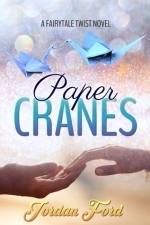
Paper Cranes
Book
Tristan Parker is lost. After living through his parent’s bitter divorce, Tristan surprises...
Young_Adult Contemporary Fantasy Romance
